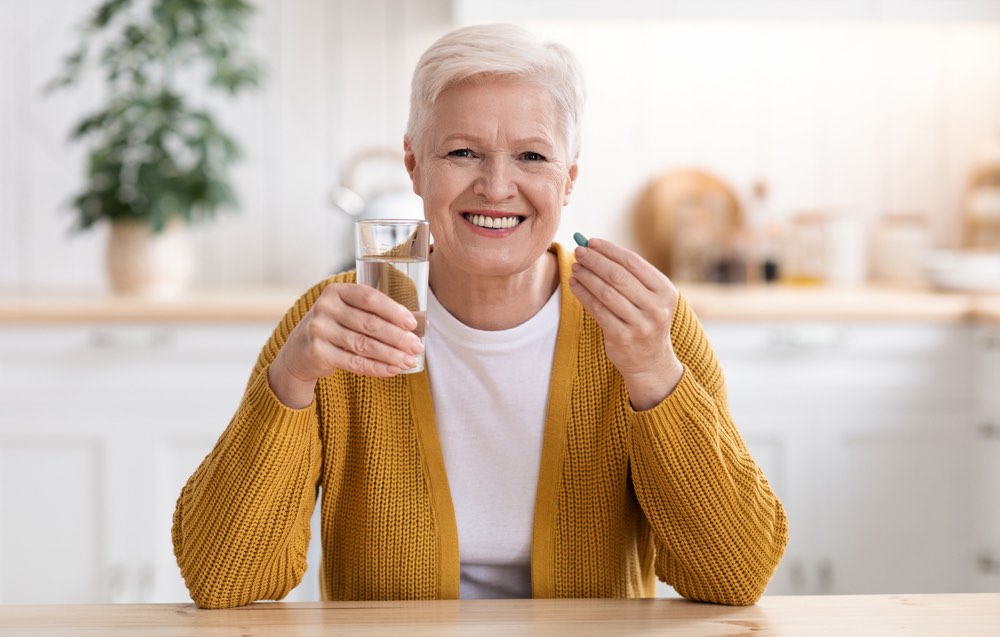Giving the aromatase inhibitor (AI) exemestane 25 mg three times weekly was non-inferior to the standard dosing of 25mg daily among study participants who complied with the schedule.
The international, multicentric study, which was supported by the US National Cancer Institute, and published by Davide Serrano et al. in JAMA Oncology, March 23, found that among treatment-compliant patients the exemestane dose of 25mg given three times weekly was non-inferior to the daily dose, in decreasing serum estradiol.
“These data support the use of a three-times-weekly schedule for further studies of exemestane in breast cancer prevention,” conclude Bernardo Bonanni, from IEO, Milan, and Andrea DeCensi, from Ospedali Galliera, Genova, PI and Co-PI of the study.
The uptake of AIs in both preventive and adjuvant settings havs been hampered by their side effects. Statistics suggest that at least one third of women who start AI therapy stop prematurely due to adverse effects, most frequently musculoskeletal symptoms. An underlying question is whether there is a ‘sweet spot’ of AI dose or frequency that maintains efficacy but minimises adverse effects sufficiently to improve uptake and compliance, and avoid premature discontinuation.
Exemestane is a steroidal aromatase inhibitor whose action results in an irreversible binding to the aromatase enzyme, causing permanent inactivation even when the drug is cleared, suggesting that the agent may have long-term effects.
In the published phase IIb study, the non-inferiority percentage change of serum estradiol using two alternative exemestane schedules (25mg given three times weekly or once weekly) were compared with the standard dose of 25mg daily.
Between February 2017 and August 2019, 171 women with oestrogen receptor-positive early breast cancer who were candidates for surgery were randomly assigned 1:1:1 to receive exemestane at 25mg three times weekly (n=56), once weekly (n=60) or once daily (n=55) for four to six weeks prior to surgery. Blood samples were collected at baseline and the final visit.
Serum estradiol concentrations, measured by solid-phase extraction followed by liquid chromatography-tandem mass spectrometry, was the primary endpoint, since it represents a direct marker of drug potency.
Results showed that, in the intention-to-treat population, the reduction in serum estradiol, by least square mean percentage change, was minus 89% for the once-daily arm, minus 85% for the three-times-weekly arm, and minus 60% for the once-weekly arm. The difference between the once-daily and three-times-weekly arms was 3.6% (P for non-inferiority = 0.37).
For the 153 participants who complied with the schedules, the reduction in serum estradiol was minus 91% for the once-daily, minus 92% for three-times-weekly, and minus 69% for once-weekly arm. The difference between the once-daily and three-times-weekly arms was 2.0% (P for non-inferiority = 0.02).
Regarding secondary endpoints, Ki-67% (used as a measure of cancer cell proliferation) was reduced in all arms, showing median absolute percentage changes of minus 7.5% for once daily, minus 5.0% for three times weekly, and minus 4.0% for once weekly.
Adverse events were similar in all the three arms.
The different findings between compliant and non-compliant participants, suggest the authors, were probably due to the lower variability in estradiol levels among compliant individuals. Regarding the finding that all three dosages showed similar magnitudes of adverse events, the authors suggest that the short treatment duration likely prevented reliable conclusions.
Prior to launching primary prevention and adjuvant trials of three times weekly regimens, the authors suggest that a study of six to 12 months should be investigated to document whether long-term adverse events are reduced among those taking less frequent doses.
In an invited commentary, Carol Fabian and Dinesh Pal Mudaranthakam, from the University of Kansas Medical Center, write, “Taken together, changes in both estrogen levels and Ki-67 suggest further study for the three-times weekly dose but not the once-weekly dose despite the inability to demonstrate noninferiority for estradiol suppression in the ITT [intention to treat] analysis or a reduction in adverse effects in the reduced frequency arms.”
Fabian and Pal Mudaranthakam believe that a reduced frequency approach (involving a three-times-a-week dosing schedule) would prove more attractive to patients than a prolonged holiday approach. “Furthermore, the ability to readily monitor estradiol levels would allow conversion to a daily dose if suppression is not optimal,” they write.












